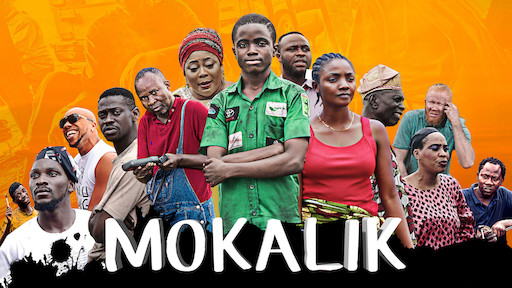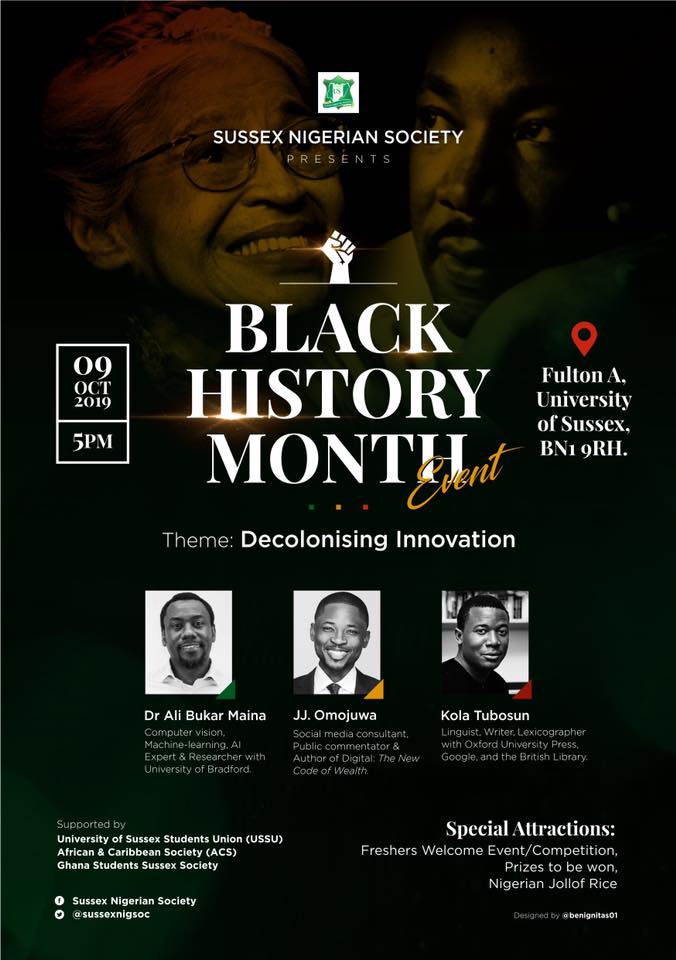Guest post by Ìbùkún Babárìndé
Congratulations to those of you- young, male, Nigerian, and travelling alone, who were able to reach your destinations with(out) molestations, after flying out of Lagos airport in the wake of that failed underwear bombing of December 25, 2009.?

O ye travellers of hope, I hope you have all found your dreams, did you find home, did you find love, did you find happiness? This is a moment of reflection for us, I am one of you. I think we need to gather somewhere and celebrate a decade of surviving what was to become hostile treatment for young Nigerians travelling in the west.
As I write, I recollect all the fears and apprehension that followed the tragedy of young Umar Farouk Abdulmutallab, and the recrimination that was unleashed on innocent young travellers from Nigeria by border forces across the world. My own maiden flight was slated for the middle of January 2010, just 3 weeks after the near-tragic incident that involved a bomb on a plane. Those who believe that the USA and the western governments took undue advantage of the incident to heighten security vetting and high-handedness towards travellers from a certain part of the world may not be wrong, as we became legitimate targets for extra checks in frontiers across the world.
I was freshly 29, at a turning point in my life, a make or break moment, a moment that I made one of the most difficult choices. I chose to leave my father’s home, and headed out to the foreign land.
(credit: Fèyíṣọlá Babárìndé. Telford, 2010)
I was coming to the UK to start my master’s degree. But the marks of ‘slaves’ were all written on my passport…. ‘no recourse to public funds’, ‘restricted work’, má j’ata, má jẹ iyọ̀, and many other repressive immigration controls on the unsuspecting prodigal son. But unlike the biblical prodigal son, I did not go away with any inheritance to squander, I had less than £100 in my pocket, and owó onírú, owó aláta, owó alájẹṣẹ́kù paid the bulk of the cost… but like the real prodigal son, I went away from home, joyfully.
Before my flight, I had taken all additional precautions, booked a direct flight- avoided ‘Amsterdam’, the bad boy had connected a targeted flight via Schiphol airport. The scheduled landing time at Heathrow must be during the daytime, such that even if I was delayed in London, my onward journey to Wolverhampton would still happen during the day.
I made sure I had ‘no goatee’, no mustache, I identified as a Christian, from the south — it was necessary at the time in order to survive. So I thought I would be no easy target for any overzealous Islamophobic- steroid charged security operative. On the morning of my flight, I was briefly pulled aside to be interviewed by two middle-aged white operatives in Lagos airport before I was allowed to board, that should be it, I have been cleared — I thought, but I was wrong.
The flight itself was safe, and full of anxiety. I was waiting to meet my wife — we had just been married for less than 4 months before the affairs of this world separated us — I became home, she had become exiled. As planned, she was to collect the ‘JJC’ in London, and we would move to the midlands, where we would live for the next decade or so.
I left Lagos around 10am, it was around 33′ C, and London was waiting for me already blanketed by heaps of snow. Snow was something I had only seen in movies. London was in sub-zero temperature, and freezing. So I prayed that our plane would be able to land without diversion, as we were warned that many flights had been cancelled in previous days.
As the plane was landing, I felt coldness creeping up my spine, clearly all my preparation for the cold had proved unhelpful. I was already wearing two pairs of socks, before I left Lagos. To keep warm, I reached for the fairly used unlined ‘Ògùnpa-gbà-mí-ọyẹ́-dé’ jacket that I bought at Dùgbẹ̀ market. My fine boy shoes, I was told were no use for the wintering London.
We landed safely, and I followed the signs towards the bagging area. In one of my luggage bags was gari, ẹ̀wà, irú woro (which had a tipper load of sea sands in it), èlùbọ́, gala, and other women things that I had bought for Fèyíṣọlá at Alẹ́shinlọ́yẹ́ market in Ibadan.
In the other bag, I had some mainframe movie CDs. ‘They will certainly be reminding me of home,’ I had assured myself. Then in 2009, YouTube was still in its infancy, and had not been populated by Nollywood-advert invested contents. I had copies of some Nigerian books too, there was a feeling that I was going to be gone for a very long time, and I had to prepare for them days. I had some Ọ̀ṣúndáres, Akeem Làsísì’s Ìrèmọ̀jé, some copies of my own ‘failed anthology’, some Fálétí’s works, and some other copyright infringed photocopied books. Amazon and Netflix have reversed all these worries today’s maiden travellers.
So I got my luggage, and I headed out into the hands of my new set of friends. I had met a party of them in Lagos, but to be faced with another security men in London… I was waived into a little huddle of fellow young travellers, at this point we were not all Nigerians in that holding, but we were all single travellers. I was taken in for checks… of course I was punctuating them with my ‘pardon’, ‘pardon me’, ‘and excuse me please’ (s), which would become part of my hurriedly developed survival phonetics in the Un-queenly many regional-accented spoken English language that I would later be exposed to, particularly in the black countries of the west midlands.
I was left in a room, with no shirt on, the machines came up to my chest- I knew they would find nothing. No powders, no tuberculosis, no typhoid- there was no ebola then (thank goodness), and no bombs.
Outside the room, I heard chatters, I could hardly understand what was been said, then footsteps fainted away from the door to the room, and everything fell silent for an eternity.
After some 45minutes, it dawned on me that I have been abandoned in the room. I waited for no further instructions, I dressed myself up, and I was posing for what I truly believed was a camera as if to tell them that I was already yielding myself to the 11th commandment (‘do they own will’)… I was no international security threat to nobody, I was just a young Nigerian happening to be travelling alone after a failed bomb attack on a plane.
I later understood what had happened to me that evening, the poor immigration staff had been understaffed, and I was not properly handed over, I must have arrived mid-shift change.
I pulled myself and my luggage out into a narrow corridor, I approached a table at the other end of the corridor, and I asked whether I could leave. Yes…yes…yes… someone said to me. And I stepped into the arrival lobby, even within the foyer, the winter breeze was already lapping up my face.

Fèyíṣọla was already waiting for me, and she was wondering and fearing the worst. There was a possibility of being refused entry, the whole process of delay, checks, and the disappearance of the security/immigration staff took almost 3 hours. We had no time for hugs and kisses, I was herded like a sheep towards the car park by the invisible winter-rod, and we headed north.
The following months were very cold, it was my very first ever winter experience. The days were very short, I was going to bed with the setting of the sun, and over-sleeping, waiting to wake with sunrise that never happened in the morning. I became bitter with the elements, particularly with the sun, I angrily wrote in a poem about the sun… ‘do not rise today,/ if you will not make me warm’… I nearly became clinically depressed. I contemplated going back home.
Every day of the last 10 years, I have remembered the words of Ìyá Àyọ̀ká- as she is fondly called by the name of one of my sisters. ‘Please do not forget home, I hope to see you again’
Her words had reverberated in my head as I drove myself from Ibadan to Lagos on the morning of my departure. I have since made several other return flights to and from Nigeria in the last 10 years, the feelings of my first flight and the words of my mum always return to me on each occasion. Though the definition of both home and exile has changed for me, there is a part of me that now (sadly) sees exile in every thought of the place that used to be home, and there is another part of me that sees new home in my exile.
There is no way I could explain my new philosophies to Ìyá-Àyọ̀ká — It will never help. I have joined myself with foreigners, all in the name of citizenship integration. All the things I should never eat, nor drink have become regulars at every dinner, and I know that I have changed and become different.
My muse left me at the depth of my depression. This is one reason for which I must return. I have failed to see any inspiration in the burgundy of autumn leaves, the white winter fields only depress me, and the sun-shined summer’s meadows would not compare with the poetry of Bẹẹrẹ, or with melodies of Bódìjà market.
______
Ìbùkún Babárìndé, author of Running Splash of Rust and Gold (poetry; Kraftgriot, 2008), writes this as a reflection to commemorate the 10th anniversary of his ‘exile’ in England.









































